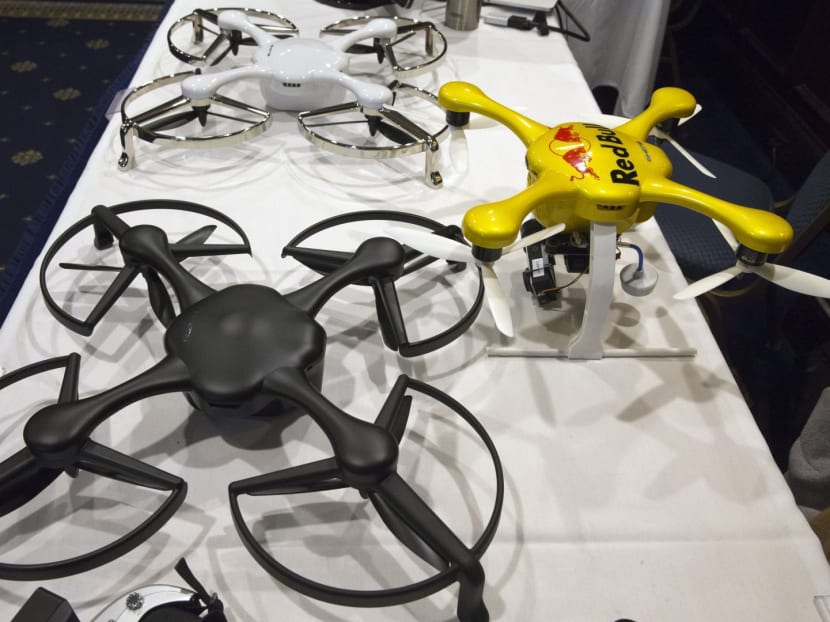China-made drone to use AI to track, film people
HONG KONG — The rise of intelligent machines could become literal this year, when a Chinese start-up begins selling a camera drone that can track and film people and objects on sight.

AP file photo of drones
HONG KONG — The rise of intelligent machines could become literal this year, when a Chinese start-up begins selling a camera drone that can track and film people and objects on sight.
Zero Zero Robotics, a Beijing-based start-up valued at US$150 million (S$202 million) in a November funding round, plans to introduce its Hover Camera later this year. The autonomous flying gadget picks out individuals and shadows them on command, capturing every movement with 4K videos and photos via a 13-megapixel camera.
CEO Meng Qiu Wang showed off a device that weighed half a pound, fits in the palm of a hand and will cost under US$600. The drone, which during the demonstration hovered in lock-step with the user, can fly for eight minutes on a single charge of a removable battery, he added.
Zero Zero Robotics joins a circle of companies, from SZ DJI Technology to IoT Group’s ROAM-e, trying to cash in on surging consumer interest in unmanned aerial vehicles.
Their sophistication has grown in recent years; market leader DJI’s popular Phantom detects and avoids obstacles.
The Hover Camera’s selling point is artificial intelligence (AI) that not only recognises a user on sight, but can track selected targets and their surroundings. It is part of a wave of affordable drones and cars that incorporate learning machines into real-world devices.
“Imagine an autonomous ground vehicle being paired up with a drone so you have eyes in the sky, which do all the mapping and task-finding,” said Mr Wang, a graduate of Stanford University. He likens the Hover Camera to a one-year-old baby that has the ability to learn and become smarter with more programming, he said.
The firm plans to give away Hover Cameras to beta testers initially, to encourage the creation of video footage and content. Wider sales from Zero Zero Robotics’ website will start in August, it said, as talks with physical distributors have yet to begin.
AI is already being commercialised thanks to advances in software computer vision, with driverless cars the next step in the process, according to Mr Marcus Hutter, a professor at the Australian National University in Canberra.
“AI will have more and more influence in our society,” he said. “This will be the biggest revolution in the next 20 to 30 years, far outweighing the industrial revolution.” BLOOMBERG





